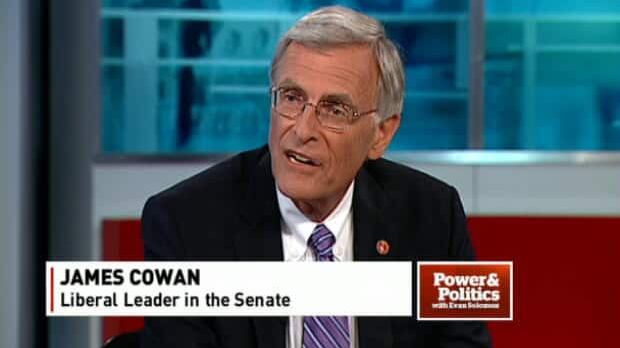Conservative senator's amendment guts union disclosure bill
Amendment renders private member's bill 'useless,' says Tory MP
In a nail-biter vote in the Senate Wednesday, an amendment by Conservative Senator Hugh Segal was passed that changes a bill that would force unions to publicly disclose salaries and spending.
The proposed legislation known as Bill C-377, and originally introduced by Conservative MP Russ Hiebert as a private member's bill in the House of Commons, now must be sent back to the House because of the amendment passed by the Senate.
Since the House has risen for the summer, the bill won't surface again until at least the fall, or perhaps even later if the House prorogues.
Hiebert's private member's bill, which was fast-tracked through the House of Commons, contained sweeping requirements for information unions would have to publicly disclose.
Not only would any union employees' salaries above $100,000 have to be posted publicly on a website, but so would any union spending above $5,000. Union salaries and spending are not funded by taxpayers, but Hiebert's reasoning was that since unions get tax breaks, taxpayers deserved to know the details. Union members' dues are tax deductible.
Several Conservative senators, including Segal, had reservations about the bill. Concerns included that the change would infringe on provincial power, since it is the provinces that have jurisdiction over labour law, and that it violated privacy.
Segal's amendment raised the threshold for salary disclosure from $100,000 to $444,000, the same as the maximum amount a senior deputy minister can earn. It also changed the amount for disclosure of union spending to $150,000, up from $5,000.
Segal's amendment also stipulates that Bill C-377 apply only to larger unions with over 50,000 members and that solicitor-client privilege be respected in any disclosures.
Hiebert says amendment makes his bill 'useless'
Hiebert, in an interview Wednesday, said he was disappointed in the Segal amendment, which he said effectively rendered his bill "useless." Asked why Conservative senators would vote in favour of gutting the bill, he said, "I cannot fully explain at this point the actions of some of my colleagues."

The Liberal Senate leader James Cowan, speaking to reporters outside the Senate chamber, said, "Our preference was to defeat the bill, but we don't have the numbers to do that. Second option was to gut the bill."
He pointed out that the bill, if it passed unamended, would have allowed the public, including employers, to see how much money a union might have in its strike fund.
Cowan praised the Senate for what he called doing its job by applying sober second thought to a flawed bill. "If the NDP had its way, there would be no Senate and Bill C-377 would have been the law of the land months ago. It was Liberal senators, supported by a handful of brave Conservative senators, who gutted this bill," he said.
However, Alexandre Boulerice, the NDP's labour critic, said in an interview that the NDP still wants to abolish the Senate. "The problem is we have a government that voted in favour of a law that was so flawed," he said.
Conservative senators in favour of Segal amendment
Josée Verner
Gerald Comeau
Nancy Ruth
Nancy Greene
Richard Neufield
Daniel Lang
Jacques Demers
Judith Seidman
David Braley
Don Meredith
Larry Smith
Betty Unger
JoAnne Buth
Norman Doyle
Paul McIntyre
Boulerice said it's "preposterous" that unions should have to disclose salaries and expenditures publicly just because union members can deduct dues. "If you consider any company or organization or person that in some way benefits from a tax credit, should they have to put it all on the table, or on a public website, how they spend their money?" he asked.
He added the bill was " a clear attempt to satisfy the base of the Conservative Party that doesn't like unions."
Forty-nine senators approved the Segal amendment, including over a third of the Conservative caucus. Seven abstained and 33 senators voted against the amendment.
Once the bill arrives back in the House of Commons, Segal's amendment can be approved or rejected, and then the bill would be sent back to the Senate once again. However, the bill won't seesaw back and forth between House and Senate endlessly. The convention established over time is that the Senate eventually bows to the will of the elected chamber.
On Wednesday, Andrew MacDougall, spokesman for the Prime Minister's Office, issued a statement saying the government still supports the bill. "As per parliamentary convention, we expect that the Senate will respect the will of the House of Commons should the bill be returned to the Senate."
